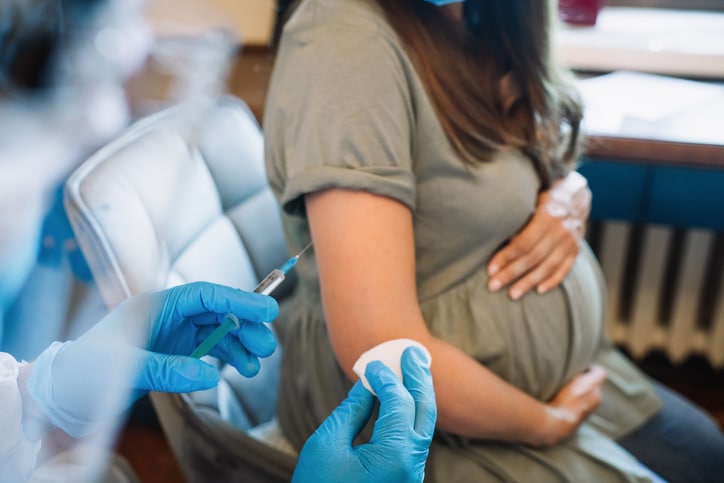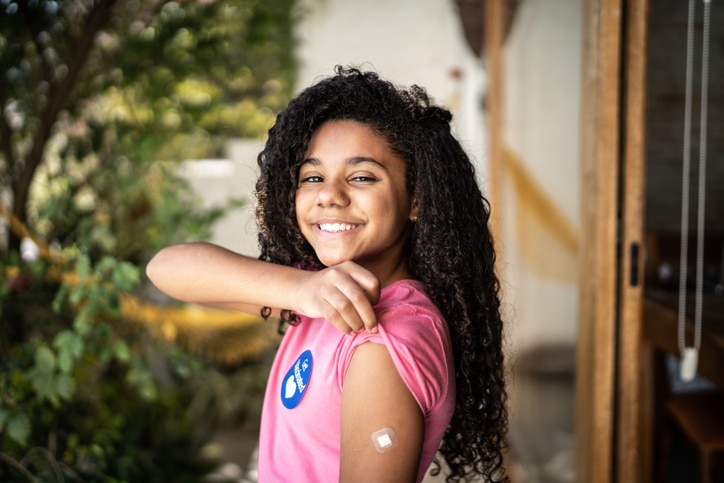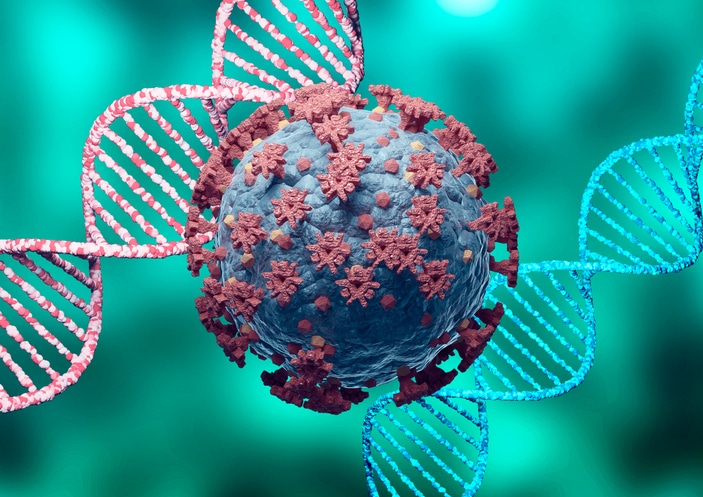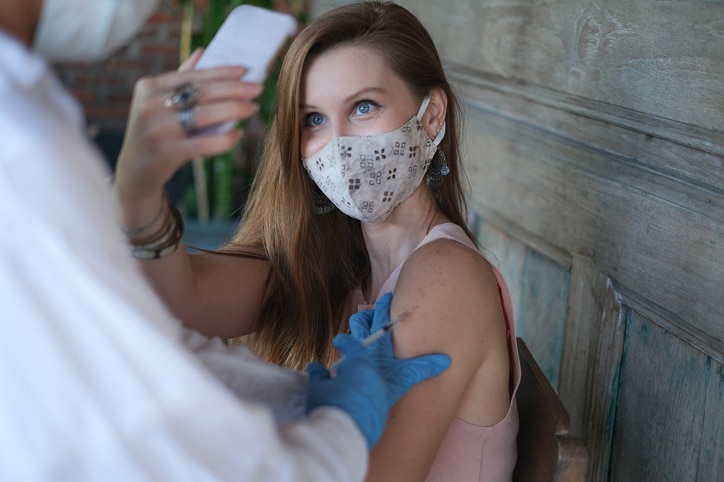With the Delta surge retreating and with millions more American children newly eligible for the COVID-19 vaccines, the holiday season could look a bit more familiar this year. However, you may need to dispel vaccine myths in between more casual conversations.
Whether or not gathering your loved ones will bring them any closer together may depend on where everyone is getting their information about vaccines and the pandemic. Many of these conversations may be fraught with misinformation, and some could even erupt in frustration.
That’s because vaccine myths circulating on social media have spread hesitancy and mistrust, says Leigh Hunter, MD, FACP, infectious disease specialist and director of the Methodist Internal Medicine Residency Program.
“There’s a lot of misinformation out there. We have to just look at each of these false claims and try to dispel them with evidence and empathy.”
— Dr. Hunter
While you may feel compelled to challenge unfounded fears head-on, it’s crucial to keep your cool and practice patience, Dr. Hunter says. Remember why you’re trying to change minds in the first place.
“COVID-19 can be prevented,” she says, “and that’s why we really want to try to help them get access to vaccines.”
To help separate fact from fiction, Dr. Hunter debunks the most common vaccine myths and misconceptions and offers some science to inform your talking points.

FACT: VACCINES ARE SAFE IF YOU’RE PREGNANT
Expecting mothers may be understandably concerned about the vaccine, but health experts across the board — from the CDC to the American College of Obstetricians to the Society for Maternal-Fetal Medicine — recommend the COVID-19 vaccine for pregnant and breastfeeding women.
Multiple studies show the risk of severe COVID-19 infections and death is higher among pregnant women, compared with those who are not pregnant, Dr. Hunter says. The vaccine, on the other hand, is a safe and effective way of protecting mothers and their babies.
“More than 200,000 pregnant women have received mRNA vaccines, and safety issues have not been identified,” she says. “The benefits of vaccination far outweigh the risks.”
And there’s another significant incentive for expecting mothers to get vaccinated, Dr. Hunter says.
“You can transfer your antibodies to your baby, so the baby is protected.”

FICTION: KIDS DON’T NEED TO BE VACCINATED
With millions of children age 5 to 11 now eligible for the Pfizer shot, the subject of vaccinating children is top of mind for many parents across the country.
And while it’s true that COVID-19 hits adults and the elderly hardest, children are by no means immune to severe infection. Nearly 2 million children have been infected, and 8,600 have been hospitalized since the pandemic began.
“COVID-19 hospitalization rates in children and adolescents rose five-fold from June to August 2021,” Dr. Hunter says. “Hospitalizations were 10 times higher in unvaccinated adolescents compared to vaccinated adolescents.
In September, pediatric hospitals hit an all-time high in COVID-19 hospitalizations, Dr. Hunter notes, and a third of those children required intensive care. More than 700 have died. An analysis by the Kaiser Family Foundation found that COVID-19 was the sixth-leading cause of death among children ages 5 to 15 during the Delta surge.
The Pfizer vaccine, which has been approved for older children, could soon receive emergency authorization (in a smaller dosage) for younger kids. It’s been found to be over 90% effective in preventing serious infection for children 5 to 11, with side effects similar to the older age group.

FACT: MOST HOSPITALIZED PATIENTS ARE UNVACCINATED
While COVID-19 can overcome the defenses provided by the vaccines, breakthrough infections tend to be milder and even asymptomatic for patients who got their shots. By and large, it’s the unvaccinated who are hit hardest by severe infections.
The data speaks for itself, Dr. Hunter says. During the recent Delta surge, unvaccinated individuals comprised approximately 95% of all hospitalized COVID-19 patients at Methodist Dallas Medical Center.
“It demonstrates how effective the vaccines are in protecting us from serious illness, hospitalization, and death,” she says.

FICTION: VACCINES CAUSE INFERTILITY
Any claim that the vaccines cause infertility is completely unfounded, Dr. Hunter says.
“Myths like this are the result of false reports on social media that COVID-19 vaccines target a protein called syncytin-1, which is needed by the placenta to form and maintain healthy pregnancies,” Dr. Hunter explains. In reality, the actual target of the vaccines is the spike proteins found on the coronavirus — completely different from syncytin-1.

FACT: YOUR DNA IS SAFE
DNA and mRNA are two separate things, and COVID-19 vaccines do not change your DNA in any way. Rather, the mRNA vaccines created by Pfizer-BioNTech and Moderna work by teaching our immune system how to recognize and target the spike proteins found on the coronavirus. Once its job is done, the mRNA is broken down and destroyed by the cells.
“It never enters the cell’s nucleus, where our DNA lives,” Dr. Hunter says.
FICTION: THE VACCINES WERE RUSHED
Scientists have been studying coronaviruses for more than 30 years, so the COVID-19 vaccines are the product of years of research and testing. Once the vaccines were developed, those decades of research cleared the path for clinical trials to take place early on.
“No shortcuts were taken, and full evaluation of efficacy and safety have taken place, just like with other vaccines,” Dr. Hunter explains. “What’s more, the government was prepared for distribution by building facilities ahead of time.”

FACT: SERIOUS SIDE EFFECTS ARE RARE
Serious reactions are incredibly uncommon, and the most common side effects are minor — muscle aches, fatigue, chills, fever, nausea — tell-tale signs that the vaccine is triggering the very immune response that will protect you from an infection.
There have been relatively few reports of vaccines causing severe allergic reactions, clotting, and myocarditis, but myths concerning vaccine safety have spread. Dr. Hunter offers additional insight:
- Any drug — or food, for that matter — can trigger allergic reactions, Dr. Hunter says. Talk to your doctor if you’ve had a reaction to a vaccine in the past.
- The clotting disorder associated with the Johnson & Johnson vaccine is extremely rare, occurring in 7 per 1 million vaccinated women between 18-49 years old — a 0.0007% risk.
- Finally, people concerned about myocarditis should know that this inflammation of the heart muscle can also occur in patients who remain unvaccinated and become infected with COVID-19. “Because of the rarity of this occurrence, the benefit of vaccination is thought to outweigh the risk,” Dr. Hunter says.
Dr. Hunter says it’s crucial to identify a reliable source for vaccine information that is backed by science. A quick internet search may yield all kinds of alarming articles, but a closer look will reveal the truth.
“Hundreds of millions of doses of COVID-19 vaccines have been given in the U.S., passing rigorous safety monitoring,” Dr. Hunter says. “The evidence clearly demonstrates how effective the vaccines are in protecting us from serious illness, hospitalization, and death.”

